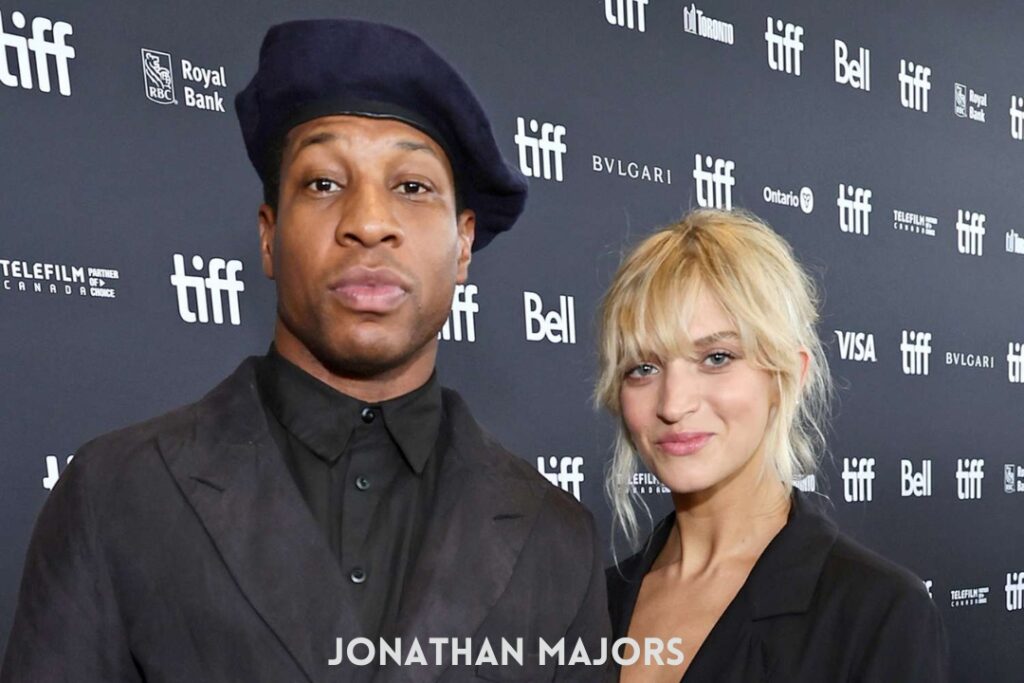In recent developments concerning actor Jonathan Majors, pivotal evidence has surfaced in text messages and an audio recording between Majors and his ex-girlfriend, Grace Jabbari. These elements have become a focal point in Majors’s ongoing assault case and have cast a shadow on both his conduct and his professional engagements, particularly his role within Disney’s Marvel Cinematic Universe (MCU).
Jonathan Majors’ Assault Case:
The newly revealed evidence contains disturbing text exchanges where Jonathan Majors seemingly discourages Jabbari from seeking medical attention for a head injury, suggesting an intent to conceal the actual cause. Additionally, the messages include troubling statements where Majors expresses self-deprecation, threats of self-harm, and an inflated sense of self-importance.
The audio recording sheds further light on the dynamics between Jonathan Majors and Jabbari, revealing instances where Majors compares himself to influential historical figures, citing his significance in the context of his cultural impact. He draws parallels between himself and prominent figures like Martin Luther King Jr., asserting his perceived greatness and role in shaping societal narratives.
Despite the ongoing legal proceedings, the implications of these revelations extend beyond the courtroom. They paint a troubling picture of Jonathan Majors’ mindset and behavior, prompting discussions about his suitability for his current MCU role as Kang, the super-villain.
From an ethical standpoint, it seems imperative for Disney to reassess its association with Majors. The sentiments expressed in the evidence raise questions about his suitability as a representative of a globally renowned entertainment conglomerate. My colleague, Paul Tassi, aptly articulated the need for decisive action, suggesting that Majors should have been dismissed based on previous concerns, and the recent evidence only intensifies the urgency for Disney to address the situation.
Read More: Alex Garland’s ‘Civil War’: Trailer Unveils Gripping Narrative of a Divided America
The mounting evidence signals a potential rift between Majors’s public persona and private conduct, tarnishing his reputation regardless of the legal outcome. This presents a predicament for Disney, compelling a reevaluation of their relationship with Majors irrespective of the assault case.

Regrettably, this situation has broader implications beyond Majors’ professional endeavors. It emphasizes the challenging reality that exceptional talent in artistry does not absolve an individual of personal misconduct or character flaws. It’s an unfortunate paradox that while Majors has demonstrated remarkable performance skills, his off-screen behavior paints a starkly different portrait.
Moving forward, the necessity to separate an artist’s work from their actions remains an ongoing debate. However, in Majors’ case, the severity and implications of the revealed evidence might make such compartmentalization increasingly tricky for audiences and industry stakeholders.

The unfolding events involving Jonathan Majors, including the distressing evidence and its repercussions, beckon a crucial juncture for Disney and the MCU. Regardless of the legal proceedings’ outcomes, the revelations have exposed a concerning aspect of Majors’ behavior, compelling a reevaluation of his association with Disney and possibly necessitating a reconfiguration of the MCU storyline.
This regrettable situation underscores the complexities of reconciling an individual’s talents with their conduct and calls for a measured and decisive response from Disney, considering not only legal implications but also ethical and reputational considerations.





